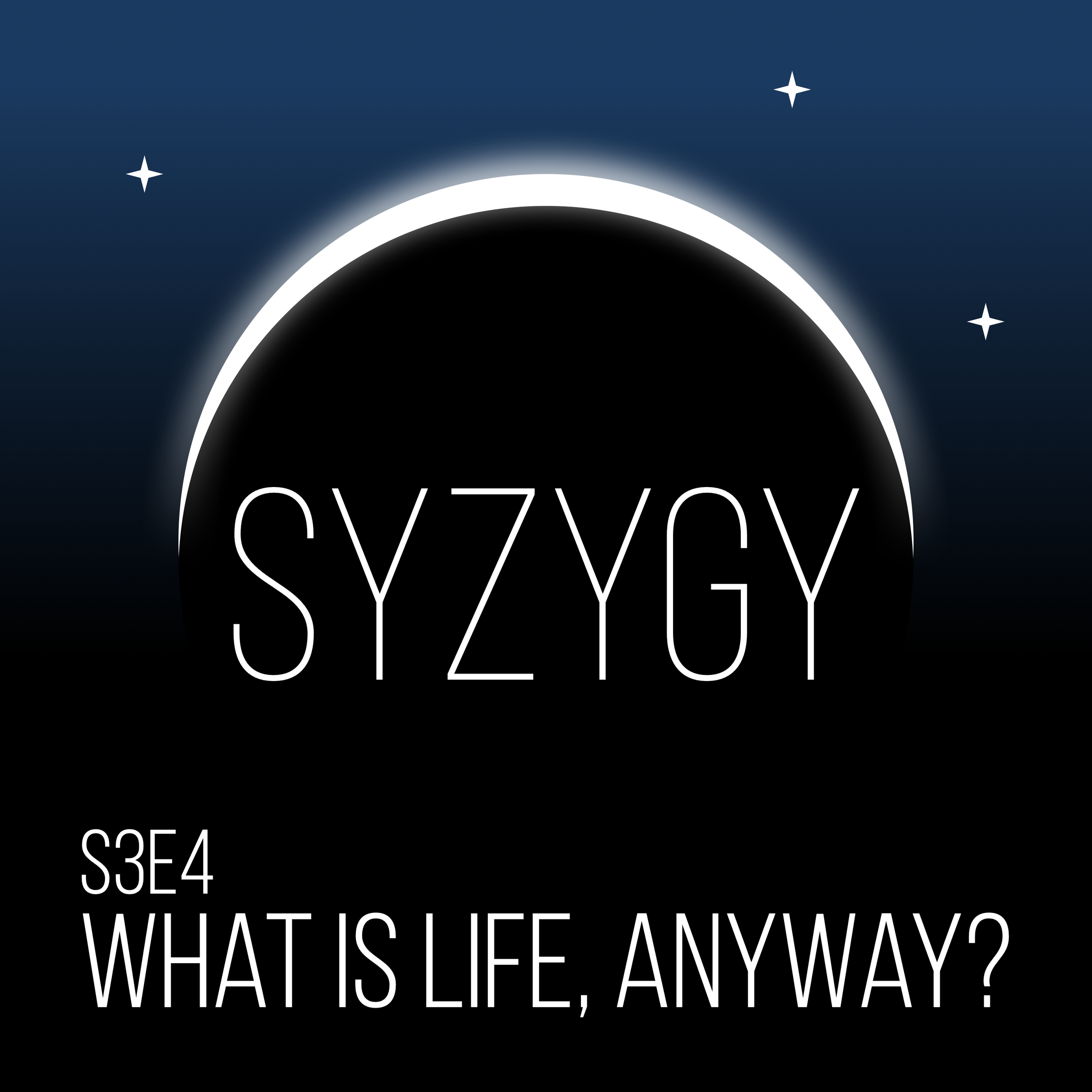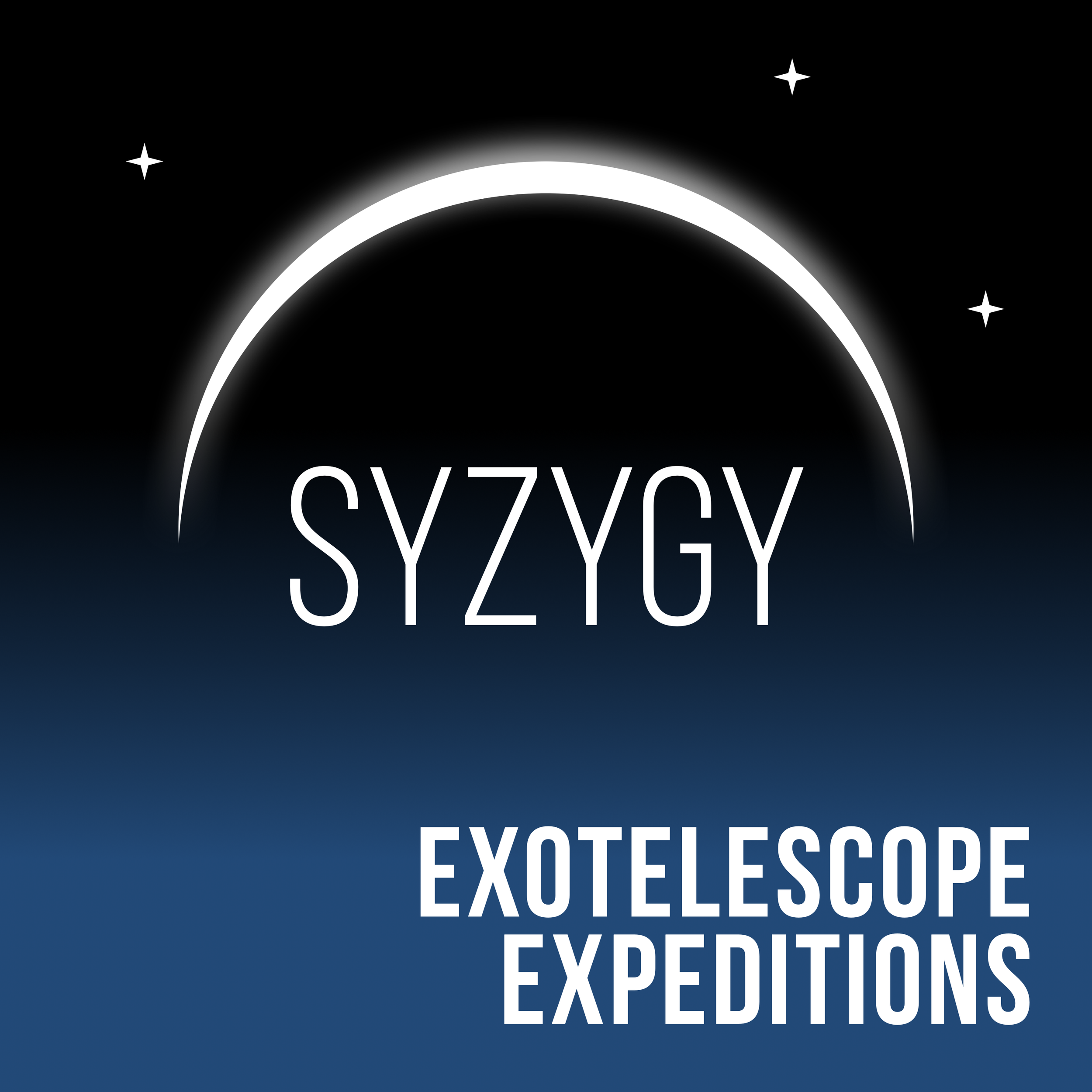
s3e4: What IS Life, Anyway?
Finally — finally! — Chris and Emily get to the meat of the matter in this season on life in the universe. Very special guest Dr Kelly Redeker from the Department of Biology at the University of York breaks down the principles of life, both on Earth and on other worlds (or "slimy rocks" as Emily insists on calling them). Do you need a Frankenstein-esque spark? Is life inevitable? What about complex life? Intelligent life? And Emily asks Kelly the big question: will we find life outside our planet?

s3e3: Solar System Sanctuaries
In this season of exploring life in the universe, it's time to consider life closer to home: what are the chances we will find evidence of life — present or past-tense — in our own back yard of the Solar System. Emily's fabuous colleague Dr Clément Moissard, plasma physicist at the University of York, joins us to discuss the chances of finding signs of life on Mars, on the icy moons of Jupiter and Saturn ... and even on Pluto?! Surely not. It's a fascinating and fun conversation with plenty of surprises: Chris somehow missed the fact that we landed on Titan in 2005, Clément is super keen to visit mysterious Planet 9, and Emily just seems fixated on tasty space fish.

s3e2: Habitats in the Void
Having established that the hunt for life in the galaxy ought to begin with an appropriate star, Emily turns our attention towards suitable planets. But what makes a hospitable home for life? It’s complicated, and it seems whatever way we look at it, we don’t have a lot of candidates to choose from. Emily discusses earth-like rocky planets, ocean worlds, and wonderfully-named Chthonian planets, before letting rip with some wild speculation. I mean, life could be anywhere, right?

s3e1: First, You Need Light
We're back with Season 3. For the next six epiosodes we're talking life in the universe, and so far we have N=1: we know there's life on Earth, but nowhere else as yet. Those are challenging statistics. In this episode Emily makes the case that to explore the possibility of life elsewhere in the cosmos, you need planets — and to have planets, you need stars. She then proceeds to whittle the number of potential life-bearing systems in our galaxy down to a scarily small number. But all is not lost, we still have five episodes to fill with hope and optimism.

s2e6: Experimental Extraterrestrial Exo-Observatory
According to one survey, around one-third of Australians think aliens not only exist, but have actually visited Earth. That's ... a bit fraction. In this final episode of season 2, we ask how we'd even find out if life exists around other stars. Emily introduces the Habitable Worlds Observatory, an incredible new space telescope that's just in the early design phase and not due for years yet, with lots of technical and scientific holes to plug. Whether we can find life on other planets, who knows ... but maybe we've just found season three of Syzygy!

s2e5: Exotelescope Expeditions
Exo-planets, sure. Exo-moons and -comets? FIne. But exo ... telescopes?! Emily is going out on a limb in this episode, expanding the definition of telescope to include things that measure stuff in space, and we're here for it! Which means we really do have a few telescopes out there beyond the Solar System, in the shape of Voyagers 1 and 2, with a few more waiting in the wings.

s2e4: Exoplanet Extrapolation
We know, we know — we did exoplanets last time. But that was the current state-of-play and a 2024 exoplanets wrapped update. In this episode, Emily looks to the future! She does a deep dive into the promise of the just wonderful JWST, as it prods exoplanets in ways they’ve never been prodded before.

s2e3: Exoplanets ExoWrapped
It couldn't be a season of exo-stuff without taking a good hard look at the current state of exoplanets, the OG exo-thing. Emily sums up the state of exoplanet research in 2024 — her Exoplanets 2024 Wrapped, if you like — then lines up her top three exoplanets of the year, and considers what's coming up next in this exo-ploding field.

s2e2: Exocomet Excitation
Exoplanets, sure. Exo-moons too, apparently. But exo ... comets?! Yes indeed, they're a real thing, and we've known about them for ages! How do you spot something so tiny around another star, so far away? Emily has the insider knowledge, because it's something she's genuinely investigating in her job as an actual, real-life astronomer.

s2e1: Exomoon Expectation
Way, way back in the early epochs of Syzygy (ep 19 in Oct 2018 if you must know) we talked about the exciting prospect of spotting the first exomoon — a moon orbiting a planet orbiting a star that is not our own. It seemed reasonable to expect that six years later exomoons would be a thing we've discovered, and maybe even started a catalogue. But turns out, observing a minute signal on top of an already minute signal is hard. Emily outlines our best prospects for exomoon discovery.
